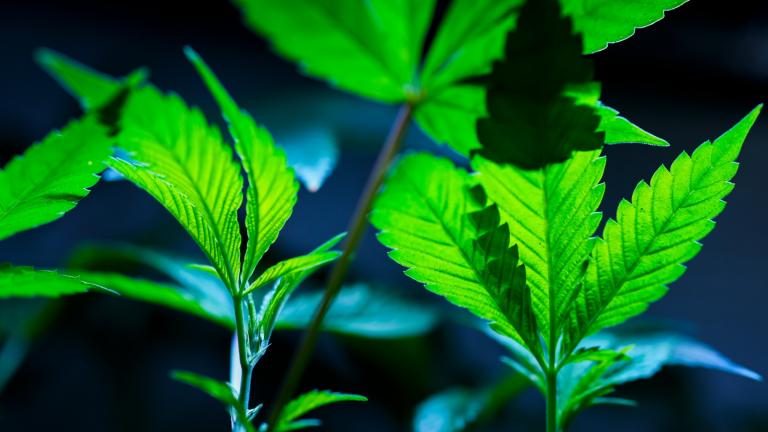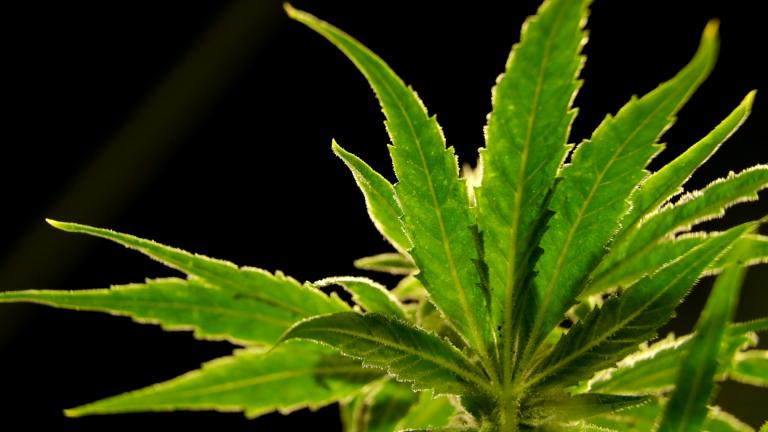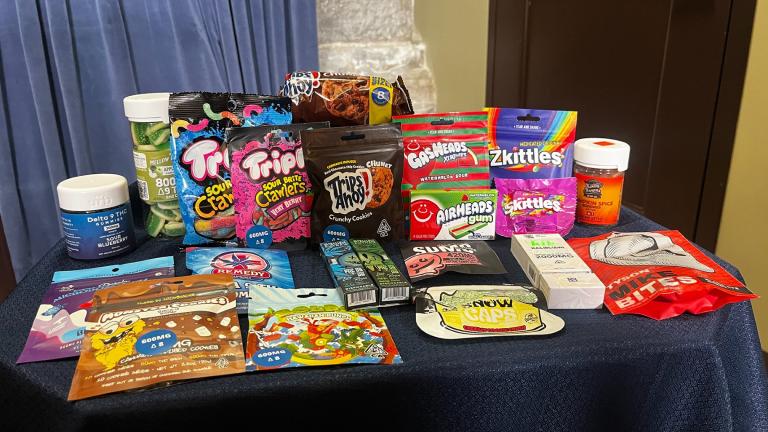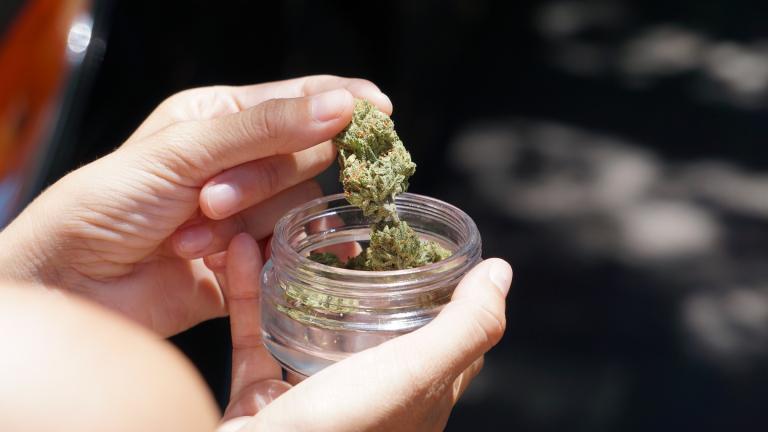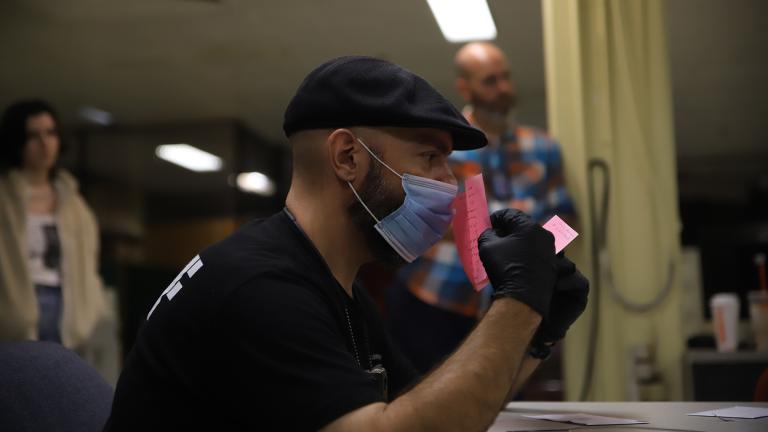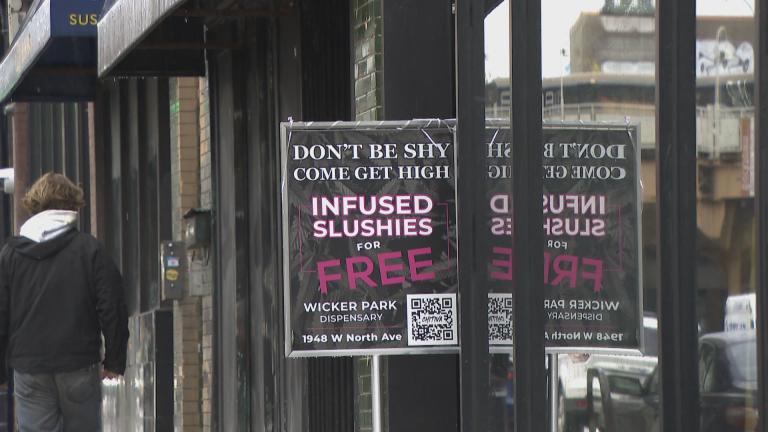 State Rep. La Shawn Ford speaks at a news conference on May 7, 2024. (WTTW News)
State Rep. La Shawn Ford speaks at a news conference on May 7, 2024. (WTTW News)
Popular shops, bakeries and wellness brands that sell delta-8 THC and other hemp derivatives that have proliferated without the weight of government oversight are now actively seeking state intervention.
“We don’t see a lot of companies coming to Springfield asking to be strictly regulated and tax their own industry,” said state Rep. La Shawn Ford (D-Chicago), the sponsor of a measure (House Bill 5306 and Senate Bill 3790) to require hemp businesses be licensed. “It’s very hard to find people that want to regulate their industry and be told what to do by government. It’s always, ‘Get out of the way, government.’”
Ford’s measure would allow an unlimited number of hemp businesses to pay $500 for a state license, and institute a 10% tax on retail sales as well as a 10% wholesale tax — charges that the industry predicts would bring Illinois $1.5 billion in revenue over the next four years.
The legislation also prohibits the sale of products made to look like non-hemp snacks and candy, limit doses and require testing of hemp products.
Ford said bad actors who break the law by selling unsafe or high-dose products or who sell to anyone under age 21 could be stripped of their licenses.
But the businesses’ quest for licensing comes as they’re under threat from a dueling legislative measure that would heavily curtail hemp operations by treating them like their cousins in cannabis: those in the heavily regulated marijuana market.
Since Illinois legalized marijuana for recreational purposes in 2020, the businesses that grow, transport and sell marijuana have paid steep licensing fees and abided by strict and expensive state rules that limit marketing and require intense security precautions.
Cultivated cannabis is taxed at 7% an ounce, while the end buyer pays a special state tax between 10-25% of the purchase price “for the privilege of using cannabis” (a higher tax is charged for cannabis with a higher THC).
Illinois caps the number of businesses that can participate in each level of the marijuana marketplace.
The Cannabis Business Association of Illinois, a coalition of licensed marijuana outfits, backs a proposal (Senate Bill 3926) sponsored by state Sen. Kim Lightford (D-Maywood) that would allow 50 hemp businesses to be brought into the fold, and require they abide by the same strict standards.
So, rather than an unlimited number of hemp businesses paying $500 for a state license, the marijuana companies want to bring in a maximum of 50 hemp dispensaries at the same $60,000 price tag it costs recreational marijuana dispensaries for a license.
“We are glad the hemp industry agrees action is needed to rein in the proliferation of unregulated delta-8 products,” said Tiffany Chappell Ingram, director of the Cannabis Business Association of Illinois. “Illinois’ cannabis laws were thoughtfully crafted and debated for years; the same care must be applied to the burgeoning hemp market.”
Marijuana businesses said hemp’s reprieve from Illinois’ marijuana restrictions and costs has deprived the state of tax and licensing revenues, and enabled the hemp industry to subvert the marijuana market while also undercutting the state’s social equity promises that legal marijuana would be a path to uplifting entrepreneurs of color and those punished when pot was illegal.
Under the association’s proposal, all sales of delta-8 and other hemp-derived THC products would be banned until a new committee establishes safety and other recommendations for a hemp regulatory framework.
Like marijuana, hemp products such as cannabidiol (CBD) oil and delta-8 also come from the cannabis plant. Unlike marijuana, they have less than .3% of the psychoactive tetrahydrocannabinol (THC).
“We look forward to working with legislators to find a path forward that empowers consumers, protects minors and ensures the state’s adult-use cannabis law lives up to its full promise, including uplifting social equity license holders and communities disproportionately impacted by the war on drugs,” Chappell Ingram said in a statement.
Todd Harris, the CEO of the hemp-infused beverage company Plift, said that as a responsible hemp operator whose drinks are “rigorously tested” prior to going on retail shelves, he welcomes state regulation and licensing, but not with the caps pushed by hemp’s marijuana competition.
“What we can’t afford is regulatory capture that puts us, our livelihoods, our friends, our families and our responsible business prices in danger,” Harris said.
The CEO of Chicago-based Cubbington’s Cabinet, Jennifer Weiss, said “innocuous” 0% THC CBD tinctures like those her company makes would be covered by a ban, cutting off consumer access to products they’ve grown dependent on for their health and wellness.
“We would have to shut our doors, as well as hundreds of other Illinois companies,” she said, arguing that would result in thousands of lost jobs.
Ford said limiting hemp processors and sellers would be tantamount to handing over an “entire industry” to already-rich owners.
“The dangerous war on drugs showed us that prohibition doesn’t work, and Illinois should reject going backwards by banning this product automatically,” Ford said. “Regulation is imperative, but I don’t think we want to hurt our economy by regulating hemp companies out of existence. That will only fuel the ugly war on drugs and encourage crime, move consumers to an illegal, unsafe market and drive thriving companies out of Illinois.”
Years of debate over how to handle delta-8 has so far resulted in no action from Springfield, and with only weeks left in the legislative session, neither version of the hemp regulations has advanced.
A University of Illinois Chicago study published in March (as reported by the Chicago Sun-Times) found many hemp products sold in Illinois gas stations and smoke shops were inaccurately labeled, some with lower THC than promised. The study also showed that most edible products were sold with “a much larger dosage per package than is allowed” by state law.
Contact Amanda Vinicky: @AmandaVinicky | [email protected]

